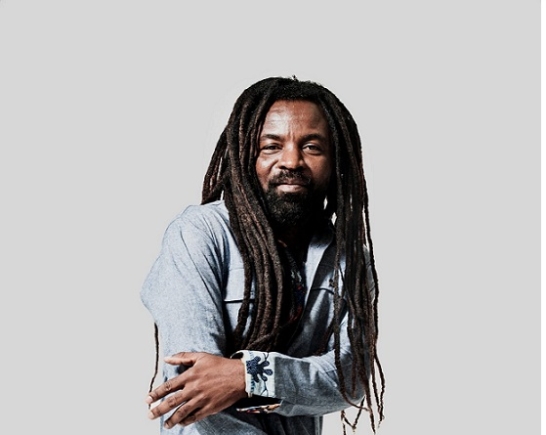![]()

Forget them! The Grammys is a big deal - Arnold Asamoah Baidoo writes
ANOTHER year, another round of conversation about the Recording Academy Awards, popularly known, as the Grammys– and we can’t be frazzled. Once the Grammys still becomes the ‘World Cup’ of all music honours across, it would definitely elicit conversations every year.
Unfortunately, Ghana lost out with none of her artistes earning any nominations for their individuals projects and the part of the rhubarb that greeted the news is that the Grammys is not all that, and Ghanaian artistes should not fixate on it.
Scowl at anybody who says Grammy is not important, has no benefits or adds nothing to the life and career of an artiste. That fellow is a dilettante and an ignoramus!
Firstly, the tag Grammys-nominated’ and ‘Grammys winner’ is such a big deal. Having that description attached to your name as an artiste elevates everything regarding your craft; respect, value, opportunities and reach.
Garnering a Grammys nomination alone offers a whole new appreciation to the song and the artiste. Music lovers perceive and embrace an artiste in a different light after the nod and professionals; revered music makers and business entities are always open to work with artistes with Grammy recognition.
When it comes to the leverage the Grammys offers, Billboard Magazine calls it, the ‘Grammy Bump’ while Forbes Magazine calls it the ‘Grammy Bounce’.
In an article for Forbes in 2012, ‘The Grammy Bounce: How Much Is an Award Really Worth?’ Senior Editor, Zack O'Malley Greenburg provided an overview on some of the benefits of winning a Grammy.
According to him, a sampling of performers and producers shows a ‘Grammy Bounce’ of at least 55 percent in concert ticket sales and producer fees during the year following a Grammy win.
The financial benefits of the award can be tremendous for big touring acts as well, according to concert data provider Pollstar. In the year after grabbing Grammy No. 1, crooner Bruno Mars' average nightly gross swelled from $130,000 to $202,000 (+55 percent); multi-instrumentalist Esperanza Spalding swung from $20,000 to $32,000 (+60 percent); and pop-country superstar Taylor Swift surged from $125,000 to $600,000 (+380 percent).
Rapper/producer David Banner, who won in 2009 for his work on Lil Wayne’s Tha Carter III says his typical producer fee soared from $50,000 before winning the award to $100,000 or more afterwards; fellow producer Jim Jonsin’s jumped 90 percent in the wake of his win for producing Lil Wayne’s smash single Lollipop.
The route to the Grammys is not rocket science; the guidelines and rules are there for every interested musician all over the world to follow.
First, Ghanaian artistes, in order to get their works at the Grammys, must have their songs/albums commercially released and distributed in the USA. The likes of Ladysmith, Kidjo, Burna Boy and Rocky all have international labels that release and distribute their music in the States.
Those on independent labels have inked deals with international distributions outfits that ensure that their music is distributed on the US market.
We have the sound, the expertise and the right purveyors; all we need are proper branding, packaging, connections and right platforms to exhibit. If artistes and songs from Mali, Senegal, Algeria and Nigeria are making it, why not Ghanaian acts?
With the effort being put in by the likes of Stonebwoy, Amaarae, Fuse ODG, Black Sherif and the many others, it’s just a matter of time.
Music connoisseurs in Ghana, who have years of expertise in music, from production, performance to education – can also help the cause of Ghanaian acts getting mentioned at the Grammys by applying to be part of the Voting Academy.
Recording Academy membership is community-driven and peer-reviewed on an annual cycle. In order to be considered for an invitation to join, these are the steps;
Get two strong recommendations from music industry peers. The Recording Academy does not accept self-recommendations. Applications with self-recommendations will be considered incomplete and will not be processed.
After your recommendations are received by the Academy, you need to give more information about your career.
A new member submission includes two recommendations and a complete profile. (Profiles can only be completed after recommendations are received.) The Recording Academy’s Peer Review Panel considers new member submissions each spring.
If approved by Peer Review, candidates are invited to join the Recording Academy by July and have until that year’s Grammy Awards voting deadline to accept. The Recording Academy approves membership at its sole discretion based on its assessment of the submission.
Much has been said about how Nigerians are aggressive and connected in pushing their agenda, especially in the arts industry. Nigerians have grounding at certain key places and ensure that their own is promoted and seen. They are part of the top brass at big record labels, part of the establishment of entities such as BET, MTVBase and other channels that project their own better.
There’s a high possibility that these Nigerians are also part of the Voting Academy of the Grammys that has seen quite a number Nigerians get nominations over the years.
There are many Ghanaians out here who have the required skills to get into the Grammys membership and ensure that our own, who have the qualification and validation are also seen and heard.
